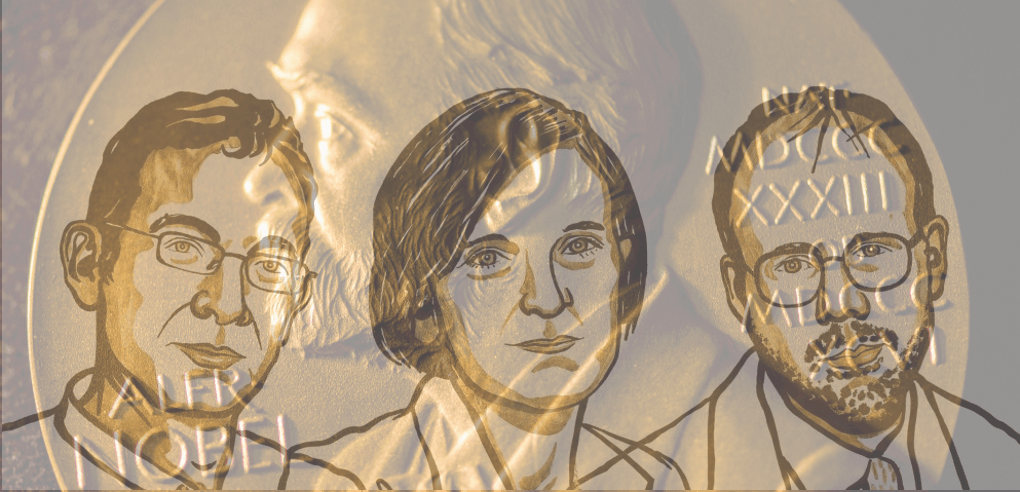2019 Economics Nobel and its Messages

THIS year's Sveriges Riksbank Prize in Economic Sciences in Memory of Alfred Nobel, popularly known as Nobel prize in Economics, has evoked considerable media and popular interest in India. The reason is one of the three recipients is Abhijit Vinayak Banerjee, an American economist of Indian origin, who had done his graduation from Kolkata's iconic Presidency College (now University) and masters from New Delhi's Jawaharlal Nehru University. After Amartya Sen, this is the second instance of a Presidency College alumni getting this premier international award. For JNU this is the first instance of its kind and comes as a major vindication for a much demonised institution which has been experiencing a non-stop all-out assault by the Modi regime since 2014. It is also significant to note that as a student activist in the campus in the early 1980s, Abhijit Banerjee was also charged with acts of anti-administration violence and was remanded to the infamous Tihar jail for a couple of weeks before being set free.
There is also another more compelling and immediate reason why many in India are celebrating the award. India is currently experiencing a severe economic slowdown, with the GDP growth rate and most other economic parameters on a downward spiral, the only thing going up is unemployment and economic misery of the poor and the common people. This economic slowdown has resulted as much from long term policy direction as from Modi government's arbitrary and absurd measures like demonetisation and the imposition of a half-baked and ill-conceived GST regime. When the economic ruin is out in the open, the government is busy fudging figures and denying the crisis with flimsy arguments like the Finance Minister blaming dropping car sales to the 'millennial mindset' that prefers hired Ola and Uber rides to owning cars or the Law Minister citing 'record box office earnings' of newly released Bollywood films. Against this backdrop of a painful economic slowdown and fraudulent lies by the powers that be, it has been a pleasant surprise for many Indians to see an economist of Indian origin who has been critical of the absurd economic measures and statistical cheating of the Modi government bag this year's Economics Nobel.
Abhijit Vinayak Banerjee, and his colleagues Esther Duflo and Michael Kremer, have been awarded the Sveriges Riksbank Prize for their experimental approach to the challenge of alleviation of global poverty. Global capital today is a digitally propelled financial behemoth which is plundering nature and the working people across the world, creating massive economic inequality and human misery. Any mention of the poor and their poverty sounds like a necessary reality check and is therefore generally welcome. Beyond various schools of Marxist economics, we have had welfare economists or development economists arguing against market fundamentalism and advocating various policy measures for poverty alleviation and reduction of economic inequality through progressive taxation or other measures of income redistribution. Banerjee and Duflo, who were already famous for their 2011 book 'Poor Economics: A Radical Rethinking of the Way to Fight Global Poverty', do not belong to this usual school of development economics. They have been honoured for using techniques of randomised controlled trials and designing micro-level schemes in their 'Poverty Action Lab' which they claim works better to fix poverty issues by influencing individual attitudes and choices.
In other words, their ways of understanding poverty or devising measures to tackle it do not really address the broader setting, whether in terms of the socio-economic structure or the macro policy context. Their focus is almost entirely on designing micro-level interventions aimed at making specific improvements in specific areas. The poor are really held responsible for their poverty and for overcoming it through their own choices and steps. Such approaches may find favour as 'corrective measures' with champions of global capitalism but can hardly make any real dent into poverty in a country like India where poverty is so deeply entrenched and constantly reproduced through the oppressive structural nexus of caste, class and gender and government policies that further impoverish and penalise the poor. But the Modi regime is so deeply wedded to corporate interests and the arrogant affluence of the super rich that the Sangh establishment has been peeved to find an economist dealing with poverty in India getting this highest international award. BJP MP from Karnataka Anantkumar Hegde's Twitter reaction revealed it most glaringly: "the man who recommended inflation and tax rates to be raised for our country...has been recognised and awarded."
Even though Abhijit Banerjee is no Amartya Sen, whether in terms of his economic ideas or political analysis (in a May 2017 opinion piece in The Indian Express he displayed surprising political naivete hailing Modi’s appeals to ‘our highest sentiment’, and waxing nostalgic about the ‘old’ RSS and BJP), the Sangh-BJP establishment has perhaps discovered another anti-national intellectual, especially because of his critical remarks about demonetisation and his reported involvement in the universal minimum income scheme or NYAY in the Congress manifesto for 2019 elections. And where Nobel Laureates are treated with such contempt, it is not difficult to understand why someone like Sudha Bharadwaj, who sacrificed her American citizenship to opt for a life of deeper engagement with Indian's dispossessed and disempowered rural poor is dubbed an 'Urban Naxal' and made to languish in jail for more than a year now. Meanwhile, India stands at an abysmal 102 rank in Global Hunger Index among 117 countries, starvation deaths continue unabated, children are fed salt and roti or rice and turmeric water as midday meal in UP schools, encephalitis and various preventable epidemics continue to kill children in large numbers in government hospitals and dalit children are beaten to death as a punishment for defecating in the open. The battle for alleviation of poverty in India cannot but be a battle for democracy, dignity and social transformation.
Charu Bhawan, U-90, Shakarpur, Delhi 110092
Phone: +91-11-42785864 | +91 9717274961 E-mail: info@cpiml.org

